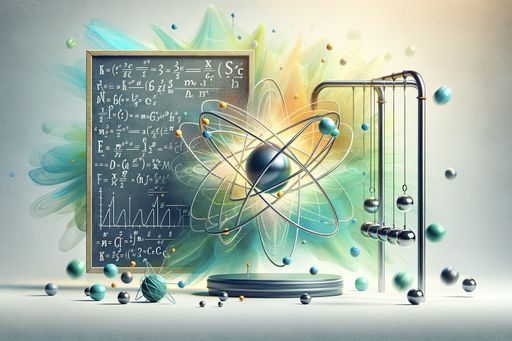Scientists Measure Gravity of Smallest Mass, Advancing Physics
New research is providing insight that may help bridge gravity and quantum mechanics.

Scientists Measure Gravity of Smallest Mass So Far
Scientists have successfully measured the gravity of an object with the smallest mass ever recorded, according to new research from the University of Southampton. The experiment involved levitating tiny particles with magnets and measuring their gravitational pull at near absolute zero temperatures. The particles had a mass of only 0.000015 ounce (0.43 milligrams). The researchers were surprised to find that they were able to detect a faint whisper of gravity at this extremely small scale.
This breakthrough has significant implications for our understanding of the universe at its most fundamental level. The interaction between gravity and quantum mechanics has puzzled scientists for a century, and this research brings us one step closer to solving the mystery. By studying how gravity operates on the quantum scale, researchers hope to gain insights into the origins of the universe, the nature of black holes, and the quest for a unified theory of everything.
The Journey of Discovery Continues
While this achievement is a major milestone, the journey of discovery is far from over. The scientists behind this research plan to refine their experiments to detect gravity in even smaller masses. By pushing the boundaries of measurement, they hope to unlock more secrets about the fundamental nature of gravity and its relationship with quantum mechanics.
The implications of this research extend beyond theoretical physics. Understanding gravity on a quantum scale could have practical applications in fields such as advanced materials, quantum computing, and even space exploration. The possibilities are endless when it comes to harnessing the power of these fundamental forces for technological advancements.
Closing Thoughts
The measurement of gravity in an object with such a small mass is a significant achievement that brings us closer to understanding the mysteries of the universe. This research opens up new avenues for exploration and has the potential to revolutionize our understanding of gravity and its role in the quantum realm. As scientists continue to push the boundaries of measurement and experimentation, we can expect even more groundbreaking discoveries in the future.
By bridging the gap between gravity and quantum mechanics, we may uncover profound insights into the nature of reality and our place in the cosmos. The quest for a unified theory of everything is an ongoing endeavor, and each step forward brings us closer to unlocking the secrets of the universe.



